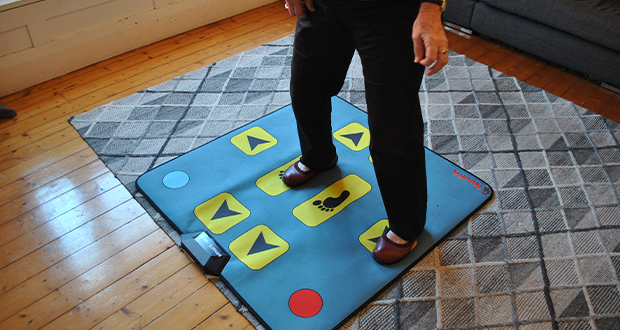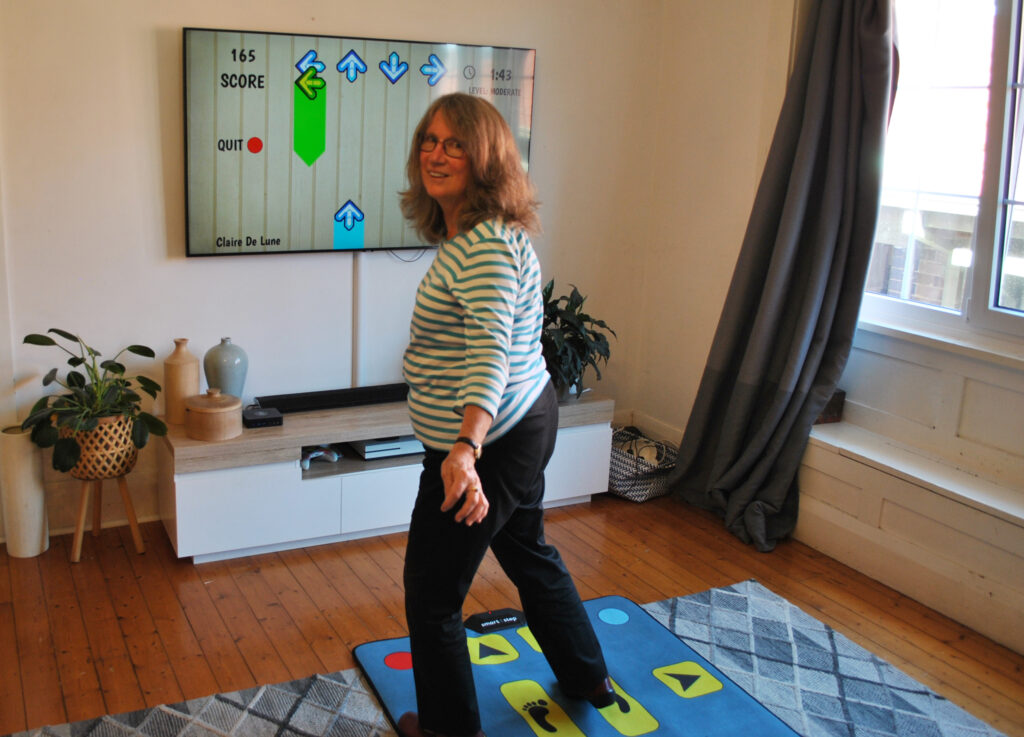A new study by Neuroscience Research Australia (NeuRA) found that at-home gamified step exercises effectively prevented falls in people over 65.
The research asked participants to do "smart±step" – an exercise gaming system developed by NeuRA – for 120 minutes per week over a year.
Data on their reported falls was compared to a control group, who only received a public health pamphlet on fall prevention.
Results found that smart±step was effective in preventing falls.
Lead author of the study Dr Daina Sturnieks said the app made exercise fun for older people.
"Regular balance-challenging exercises is effective at preventing falls, so we tried to make exercise fun and easy to do," Dr Sturnieks said.
"It was really encouraging to see that smart±step, an exergaming console that anyone can enjoy at home completely unassisted from a therapist, brought a benefit to older people by preventing falls."
Falls were considered the number one preventable injury in aged care, with around 42 per cent of hospitalisations and 40 per cent of deaths.
The Australian Institute of Health and Welfare reported that 27,900 hospitalisations were due to falls that occurred in residential aged care.
Dr Sturnieks said accurate and consistent balance-challenging exercise was the best evidence for fall prevention, but it could get boring quickly and easily.
This led Dr Sturnieks to explore the idea of gamifying the balance exercises.
"People get addicted to games because they are fun, and they become motivated to beat their high scores and just get lost in the game," she said.
Gamification in the healthcare industry is on the rise, with a global growth rate of 22.6 per cent by 2030, reaching an estimated $25.2bn.
Research has also shown gamification can improve patient engagement by turning mundane tasks into fun activities.
Using gaming elements such as points, badges, challenges, and levels fosters a sense of achievement and competition – attracting and motivating patients to stick to their treatment routines consistently.
With smart±step's exergames, both physical exercise and cognitive exercises are integrated into the game.
"These exergames require people to think quickly, unlike traditional exercise programs where you just go through the movements," Dr Sturnieks said.
"Exergames are like a two-in-one, you get physical benefits but also you are keeping yourself cognitively challenged – which is good for the brain and health ageing.
"Plus, it's fun!"
Do you have an idea for a story?Email [email protected]
 Aged Care Insite Australia's number one aged care news source
Aged Care Insite Australia's number one aged care news source


